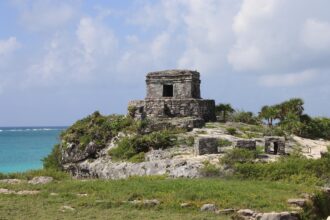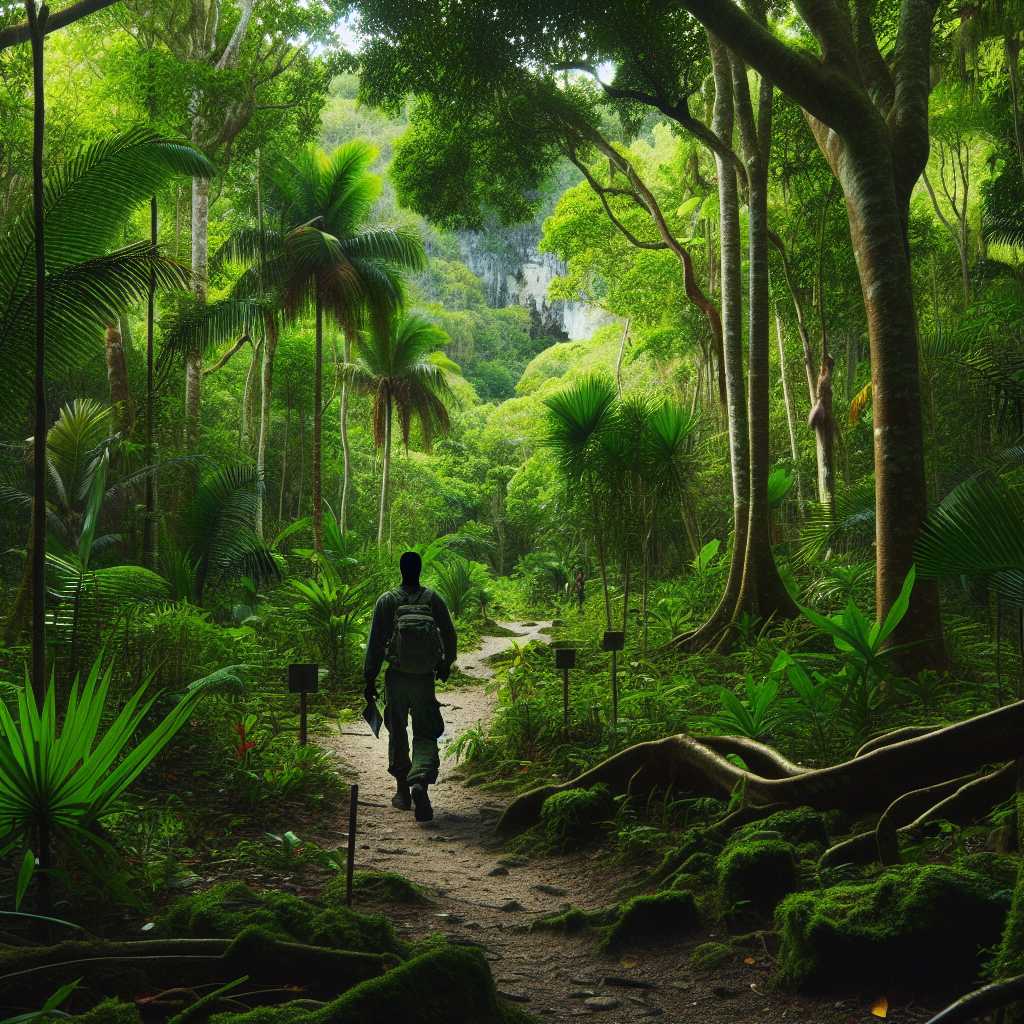Understanding Tulum’s Ecosystem
Tulum is nestled amidst one of the most beautiful natural landscapes, showcasing lush jungles and pristine beaches. The region is home to diverse flora and fauna, from majestic ceiba trees that symbolize the Mayan culture to endangered species like the jaguar. Understanding the ecosystem is the first step in traveling responsibly in Tulum. Tourists should familiarize themselves with the local wildlife, the delicate balance of the jungle’s flora, and the importance of maintaining this ecosystem for future generations.
Sustainable Transportation Options
To minimize your carbon footprint, consider using eco-friendly transportation while exploring Tulum. Biking is a popular choice, given the flat terrain and designated bike lanes. Rentals are widely available, allowing you to navigate the town and surrounding areas at your own pace. Alternatively, walking is an excellent way to soak in the natural beauty and local culture, as many attractions are within walking distance. If longer distances are necessary, consider shared taxis or electric vehicles that comply with sustainability practices.
Responsible Wildlife Encounters
Tulum’s jungle is teeming with wildlife, and while many attractions promote animal encounters, it’s crucial to prioritize ethical practices. Avoid activities that exploit animals, such as swimming with dolphins or riding elephants. Instead, consider eco-tours that focus on the conservation and observation of animals in their natural habitats. Birdwatching tours, for instance, can provide insight into the area’s biodiversity without disturbing the local wildlife. Always maintain a respectful distance and avoid feeding wild animals, which can disrupt their natural behaviors.
Eco-Friendly Accommodations
Selecting eco-friendly accommodations can significantly reduce your impact while traveling in Tulum. Look for lodgings that implement sustainable practices, such as solar energy, water conservation systems, and utilizing local materials in construction. Eco-lodges and boutique hotels often provide immersive experiences that enhance your understanding of the local environment. These establishments typically support local economies and offer tours that share their ethos of sustainability.
Mindful Eating and Local Cuisine
Food not only provides sustenance but also offers a way to support local communities and sustainable practices. Tulum’s culinary landscape is rich with options that highlight organic and locally sourced ingredients. Seek out restaurants and markets that prioritize farm-to-table dining. When possible, choose establishments that grow their own produce or partner with local farmers, thus minimizing transportation emissions. Moreover, indulging in traditional Mayan dishes fosters cultural appreciation and preserves culinary heritage.
Minimizing Waste
A significant part of responsible travel is reducing waste. Bring reusable items such as water bottles, shopping bags, and utensils to minimize single-use plastics. Many establishments in Tulum offer refilling stations for water, so staying hydrated while avoiding plastic waste becomes easy. Participate in the local “Plastics-Free” movement by choosing biodegradable products when necessary and disposing of waste responsibly. Understand the area’s recycling practices to ensure that you are making a positive impact.
Eco-Conscious Activities
Tulum offers a variety of eco-conscious activities that allow travelers to enjoy its natural beauty while respecting its environment. Snorkeling in cenotes or off the coast is a fantastic way to engage with marine life but choose certified eco-tours. These operators prioritize coral protection and are informed about respecting marine ecosystems. Additionally, hiking or guided jungle tours can educate you about the native plants and their medicinal properties without causing harm to the environment.
Engaging with Local Communities
Respectful travel also involves engaging positively with local communities. Participate in community-based tourism initiatives that allow you to immerse yourself in Tulum’s culture while giving back to the community. Consider taking part in community workshops, such as traditional crafts or cooking classes, where your participation contributes to the livelihood of local artisans. Always approach these interactions with an open mind and respect for the customs and practices of the locals.
Understanding Environmental Regulations
Familiarize yourself with local environmental regulations and guidelines to ensure that you contribute positively to the preservation of Tulum’s jungle. Regulations may include restrictions on fire and camping, guidelines for traversing certain areas, and bans on certain activities during specific seasons to protect wildlife. Staying informed will help you remain compliant while enjoying your experience in Tulum.
Supporting Conservation Efforts
Many organizations in Tulum focus on environmental conservation and restoration of the region’s natural habitats. Before your trip, research local initiatives or NGOs that align with your values. You might consider volunteering your time or making donations to support their crucial work. Participating in beach clean-ups or wildlife conservation projects can be rewarding ways to give back while experiencing the beauty of Tulum’s landscape.
Preparing for Your Trip: The Essentials
Before embarking on your travel to Tulum’s jungle, prepare adequately by researching your trip. Pack essential items that align with responsible travel practices, such as biodegradable sunscreen, insect repellent, and eco-friendly toiletries. Choose clothing made from sustainable materials and consider wearing natural fibers to blend in better with the local environment. Ensuring you have all your necessities not only makes your travel easier but also reinforces your commitment to responsible tourism.
Emphasizing Education and Awareness
A core aspect of responsible travel is education. Take the time to learn about Tulum’s environmental challenges and successes. Reading up on sustainable tourism practices, protection of coral reefs, and local efforts towards reforestation can provide a well-rounded context for your trip. Sharing this knowledge with fellow travelers can amplify ethical practices and promote a culture of respect for nature, creating a more sustainable future for Tulum.
Leaving No Trace Principles
Embracing the “Leave No Trace” principles can dramatically impact how you interact with Tulum’s jungle. This philosophy encourages travelers to leave natural spaces as they found them, minimizing human impact. This includes disposing of waste properly, staying on designated paths while hiking, and avoiding picking plants or disturbing local wildlife. Adopting these principles ensures that Tulum’s beauty remains intact for future generations to enjoy.
The Importance of Reflection
Traveling responsibly also involves self-reflection regarding the impact of your actions. Take time during your visit to reflect on how your choices affect the environment, local communities, and the broader ecosystem. Consider keeping a travel journal to document your thoughts and experiences, focusing on how you can further embrace responsible practices. This ongoing reflection will deepen your understanding of your role as a traveler and the importance of respecting the delicate balance of nature.
Conclusion: Your Role in Conservation
As a traveler in Tulum’s jungle, you play an integral role in the preservation of this stunning region. By embracing sustainable practices, engaging with the local community, and respecting the natural landscape, you contribute to the ongoing conversation about responsible tourism. Every choice you make can ripple positively through Tulum, ensuring that its beauty and biodiversity are cherished for years to come.







